Once a year, a group of geriatric leftists gathers to talk politics over roast chicken and bowls of (imitation) shark fin soup.
Hundreds of aging leftists gather in a restaurant tucked away in an obscure corner of an old shopping complex. They talk, shout, argue, and rant about the government. One of them goes onstage and demands political change in the next elections; he is greeted with raucous applause and loud cheers.
The attendees are mostly in their seventies or eighties. Several lean on spouses, children, or canes as they hobble to and from their seats. The restaurant staff has to make way for a wheelchair or two as they weave between the tables filling glasses with tea or orange juice.
The third day of Chinese New Year marks the annual lunch gathering of the Old Left in Singapore. Members of the leftist movement of the 1950s and 1960s—former student activists, union workers, and politicians—meet to reminisce about the good old days. It’s been such a long-standing tradition that some have lost count of how many they’ve attended.
“Since the 1980s, I would say,” says 80-year-old Loh Miaw Gong, a tiny white-haired lady who switches between Mandarin and English with ease. “Unless I’ve had really urgent matters to attend to, I’ve attended every year.”
This assembly represents a slice of Singapore history omitted from school textbooks. Largely Chinese-educated, these senior citizens were once at the forefront of the anti-colonialist movement on which the still-ruling People’s Action Party (PAP) rode to prominence and, ultimately, victory. Many of them paid a high price for their efforts, too, through arrests and detentions carried out by the colonial government, and later by the PAP itself under its indomitable leader, Lee Kuan Yew. Lee went on to be Singapore’s Prime Minister for over three decades.
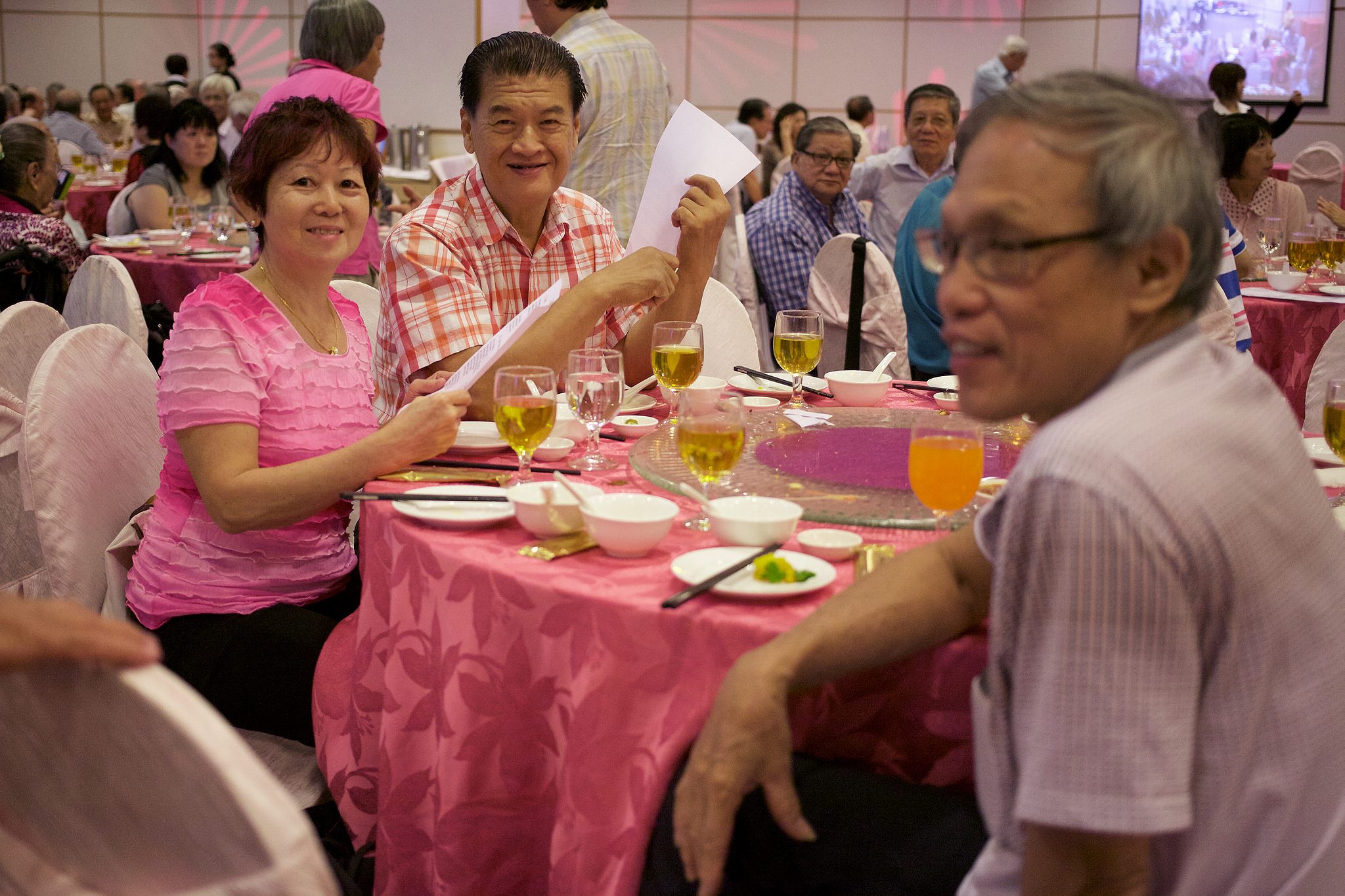
Both the PAP and Lee played major roles in making Singapore what it is today, so much so that it is often difficult to separate the actions and decisions of the politicians from the trajectory of the nation. The party has won every election since the country’s first in 1959, and it continues to fill the vast majority of seats in Parliament.
Yet it is not without controversy. Critics have criticized the ruling party for clamping down on civil liberties—Singaporeans generally do not have freedom of assembly for protests and demonstrations, and censorship is common. Some point to the early arrests of the leftists as the first salvo in a series of actions that have diminished civil liberties in the tiny island nation.
Remembrance of this tumultuous period has become particularly sensitive this year. The government is going all out to celebrate Singapore’s fiftieth year of independence under the “SG50” banner. Many aspects of the “Singapore story” are being emphasized, but these leftists are unlikely to get much recognition. As it is, most young Singaporeans know next-to-nothing about the leftist’s role in the nation’s history.
The PAP insists that sweeps such as Operation Coldstore in 1963—in which over a hundred individuals were detained without trial were necessary to contain the communist threat and protect Singapore. Historians who have suggested that the arrests were politically-motivated have been branded “revisionists,” their analysis countered with the erection of memorials and the republishing of Lee Kuan Yew’s old radio talks on the dangers of communism and the need for a merger with Malaysia. Singapore’s current Prime Minister Lee Hsien Loong (the son of Lee Kuan Yew), who has governed since 2004, himself drew the link between questioning the narrative and questioning the legitimacy of the ruling party.
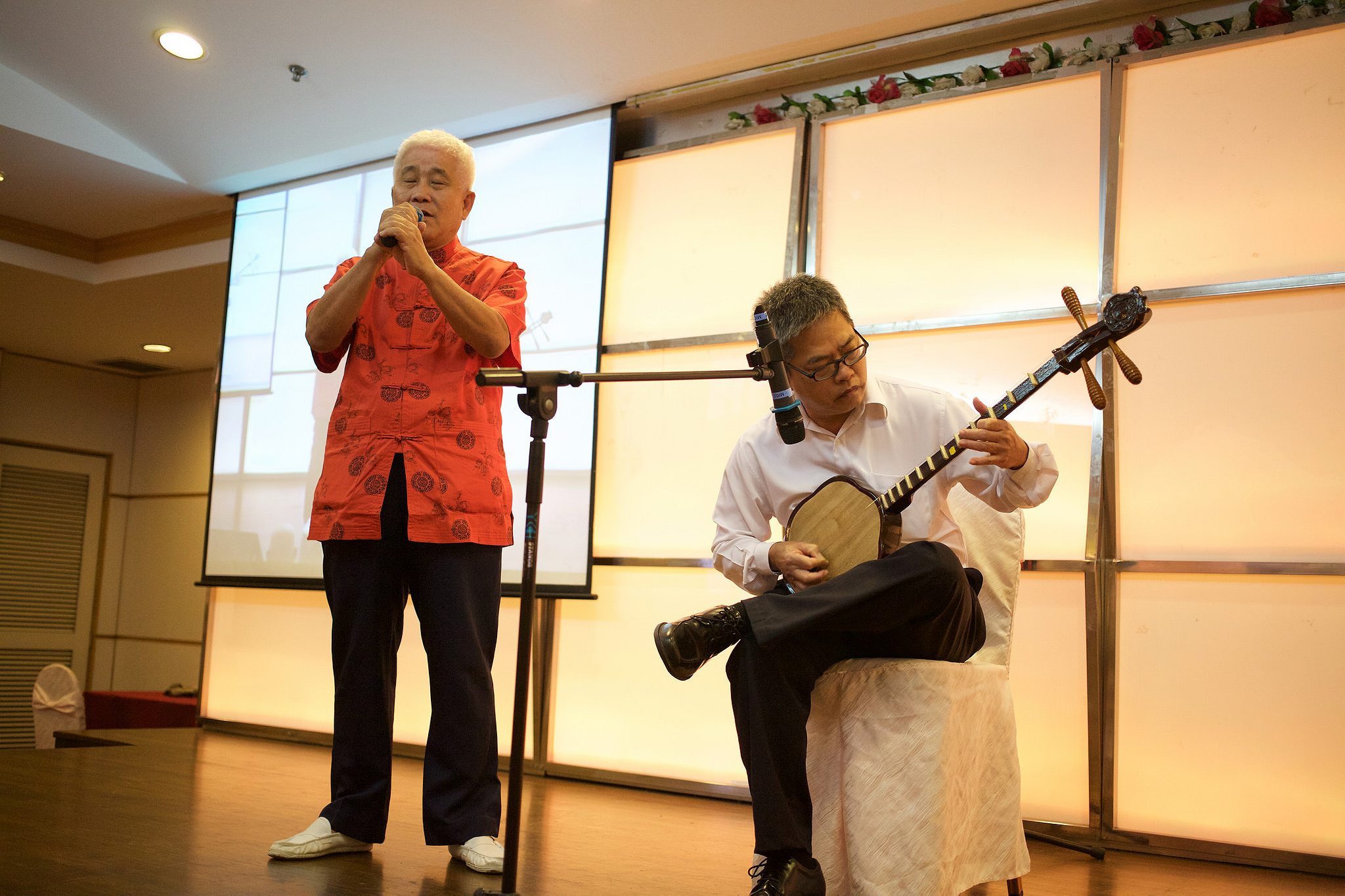
But these old school leftists have stuck together with remarkable solidarity. There are over 30 tables laid out in the restaurant, each accommodating ten people, and they fill up fast. I’m told the crowd grows every year; old factions and rivalries fade away, leaving only the memory of a shared struggle. Their refusal to give up and forget is their final act of defiance of the state-led amnesia.
They’ve even put together a new book for the occasion: a collection of historical documents and writing on Singapore’s short-lived merger with Malaysia in the 1960s. But publication costs have led to some documents being presented in rather small print, and it’s suggested to the assembled old folks—with apologies, of course—that they read the book with a magnifying glass.
“People wonder what brought us together. I believe the answer lies in a common suffering. We have been thrown into jail for months, years, because of a draconian law invoked by the party in power,” says 76-year-old Tan Kok Fang during his speech at the beginning of the meal.
Tan himself was arrested in 1963 under Operation Coldstore, and was detained for four-and-a-half years. He had been the external affairs secretary of the student union in a Chinese-language university known for its left-leaning student activism. “I had just graduated from Nanyang University. I didn’t even make it to my convocation!” he recalls.
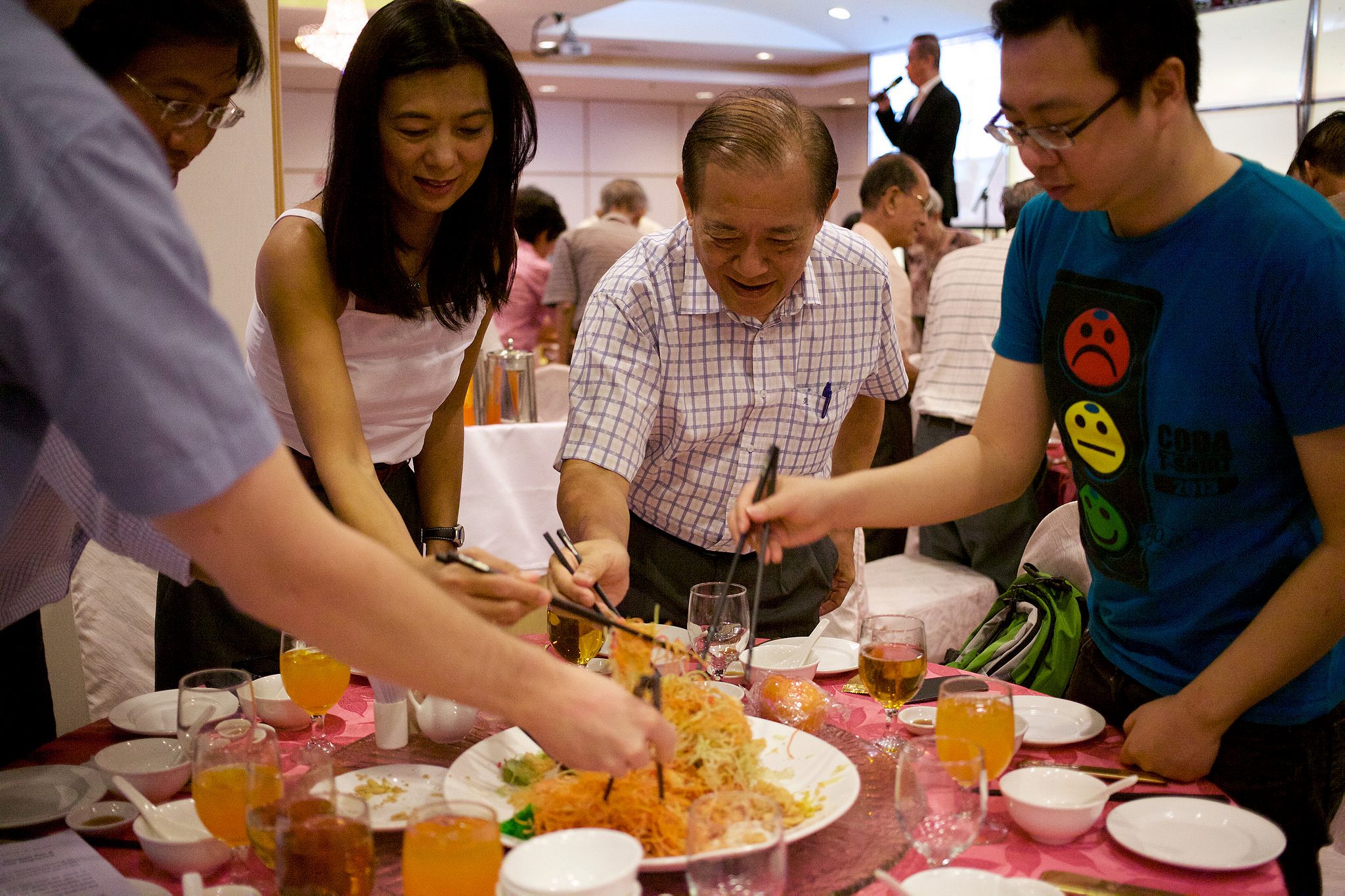
“It was the spirit of the time,” he adds. “Young people across the world were fighting the colonialists, and I wasn’t any different from a young person in Africa or South America. I am not a communist, but I felt, as a young man, we should do something for our country.”
Loh Miaw Gong spent even longer in detention. She was first arrested as a student activist in 1956, and was detained for about three years. Her defense lawyer was Lee Kuan Yew himself, then a young politician and legal advisor to trade and student unions. “He defended me. He said the charges were baseless,” she says.
In 1963 she stood as a candidate in the general elections as a member of Barisan Sosialis, a party set up by former PAP members who left the PAP due to ideological differences. She beat three other candidates to become an elected Member of Parliament, but never took possession of her seat.
“I was elected in mid-September. In early October I was taken in for my free meals,” she says wryly, referring to her arrest and subsequent detention of over six years. Her former defense lawyer, she added, arrested her on similar grounds to those he had argued against less than a decade earlier.
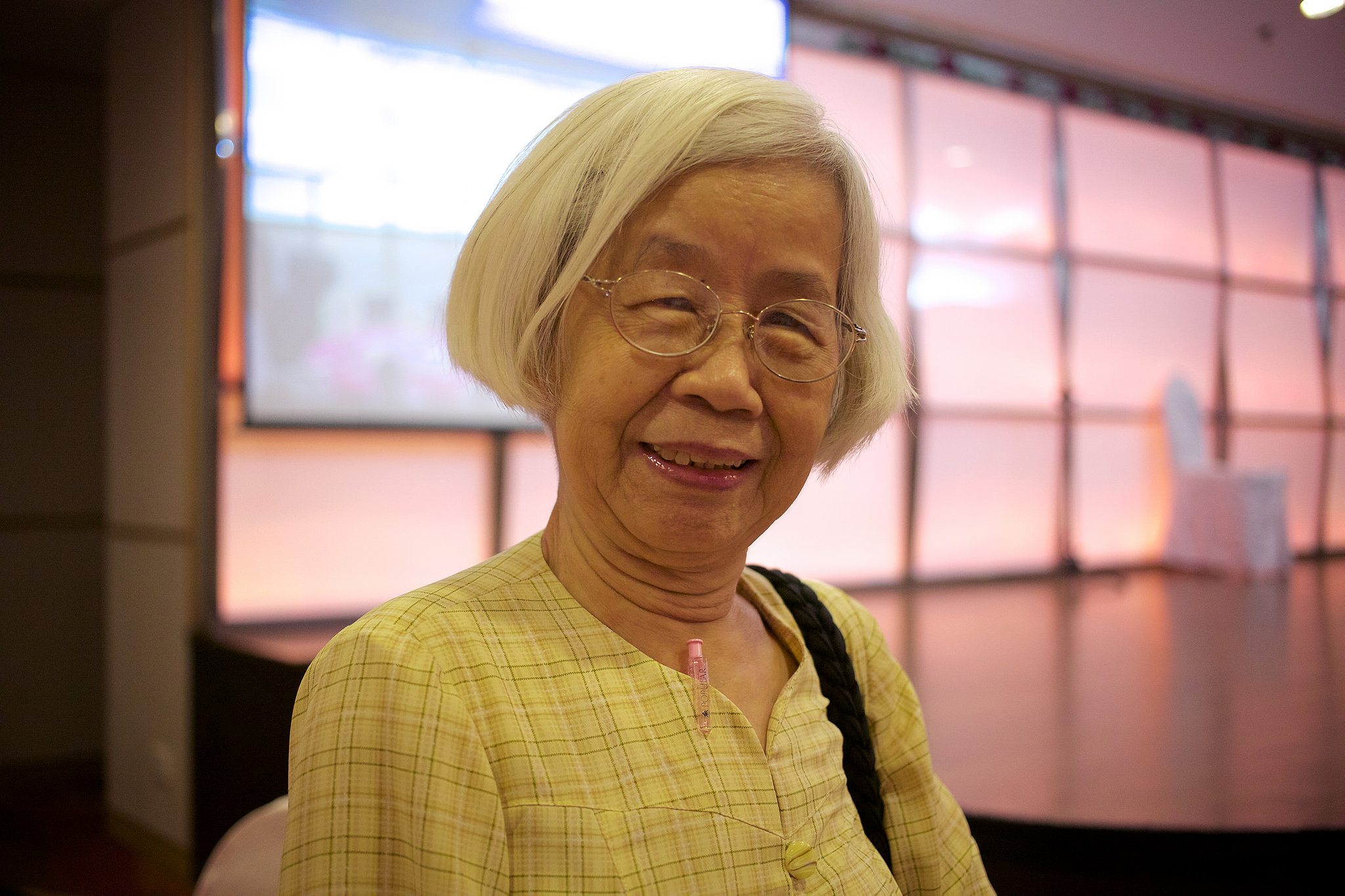
As with all Chinese banquets, courses are brought out one-by-one, and attendees make conversation at their table as they toss the traditional Chinese New Year yusheng—a raw fish salad—and enjoy the fried prawns, braised vegetables, and roast chicken. The consensus is that the per-head cost of the lunch isn’t expensive enough for it to be real fin. On stage, performers take turns singing old favorites, buoyed by the support and enthusiastic applause of their comrades.
The high point comes as the last courses are cleared away, and a line of singers file on to the stage. Lyrics, all in Mandarin, had been distributed to each table beforehand. Some reach for reading glasses while others squint at the sheet; as the choir belts into the microphones, it’s impossible to do anything but listen or sing.
Then comes the final song, and printed lyrics are no longer needed. Every leftist worth his or her salt knows this one. A man pops up from his seat, clapping his hands over his head as he shouts the lyrics: “Unity, unity is strength!” It is, as far as I can tell, the Mandarin version of the famous union anthem “Solidarity Forever.”
“Tuan jie shi li liang! (Unity is strength!)” another elderly man bellows as the song ends, pumping his fists over his head.
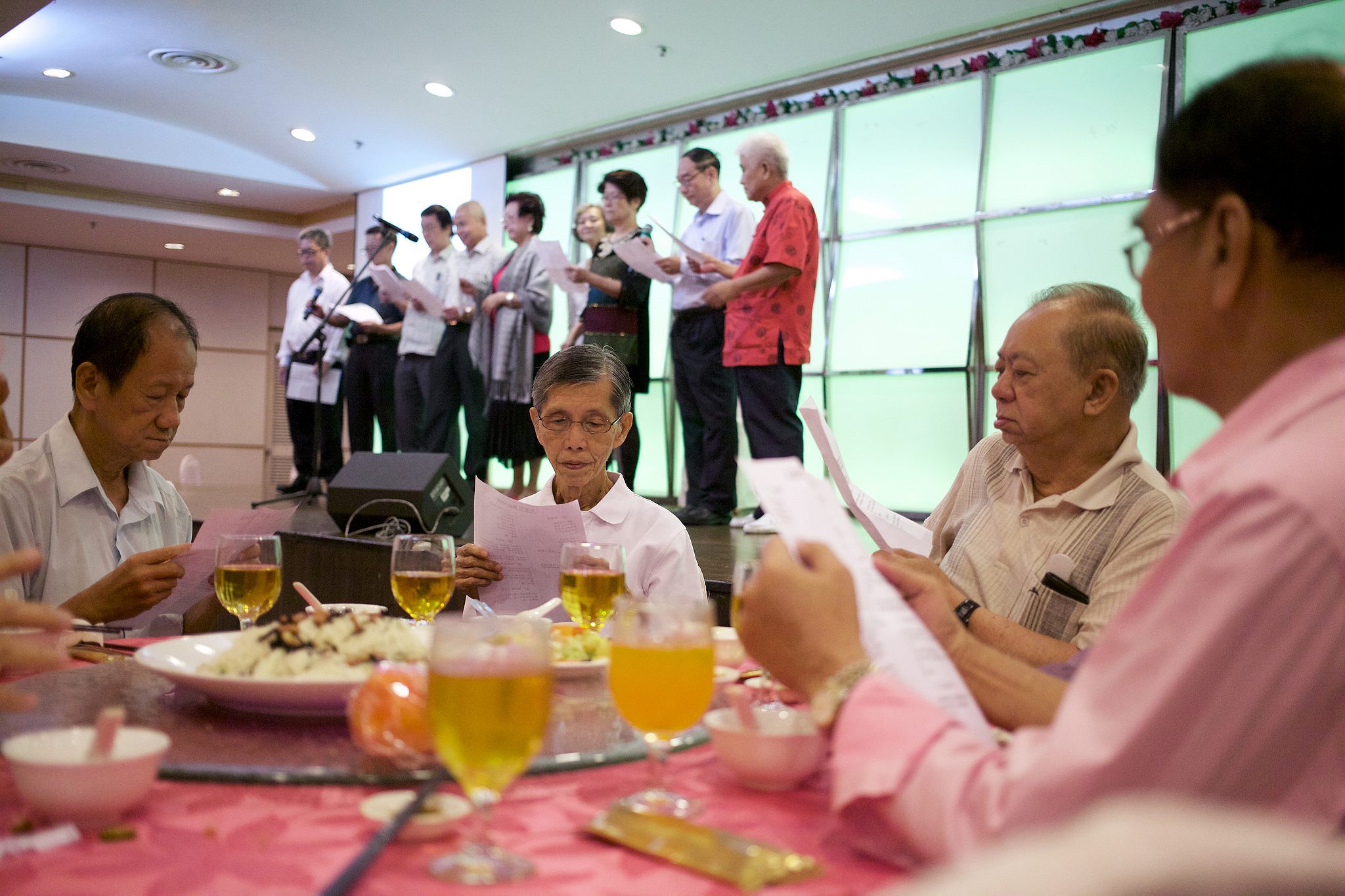
Nothing will bring back the Singapore of their youth. Too much has changed, and not all for the worse. Many assembled will readily admit that the city has made impressive gains in the past fifty years.
But progress and development is not the be-all-end-all for a young nation grappling with its identity and past. “It’s good that the government wants to recognize the pioneers of Singapore,” said 60-year-old Ravi Sharma, whose father was a member of the controversial Communist Party of Malaya. He gestures at the elderly men and women, slowly trickling out of the restaurant at the end of the meal. “But they can’t just start from 1965. There were so many before, and they lay the foundation.”
When asked about her impression of a 50-year-old sovereign Singapore, Loh laughs and looks into the distance, thinking. “What should I say about this? I have so many feelings about Singapore and our fiftieth anniversary.” She’s almost speaking to herself.
Then she gathers her thoughts and looks me in the eye. “What we are most angry, most upset about is that they’re not only denying our contribution, but saying we threatened the nation. Lee Kuan Yew rose on the back of the students’ sacrifice.”
She nods, a little old lady still hurting from a decades-long sense of betrayal. She bids me farewell, and rushes off to say goodbye to an old friend for another year.